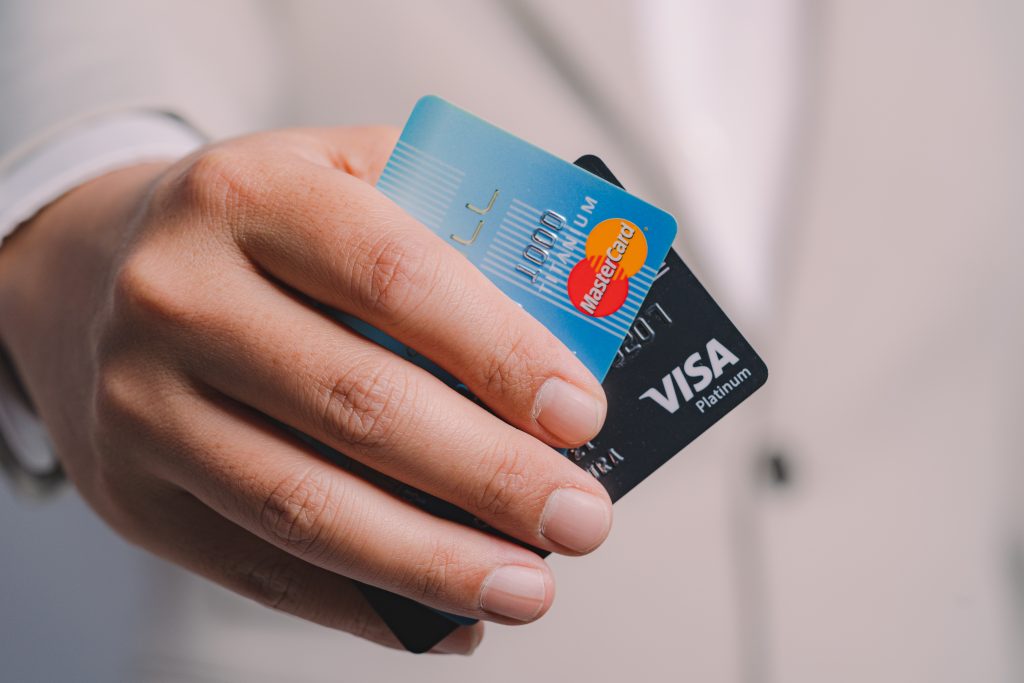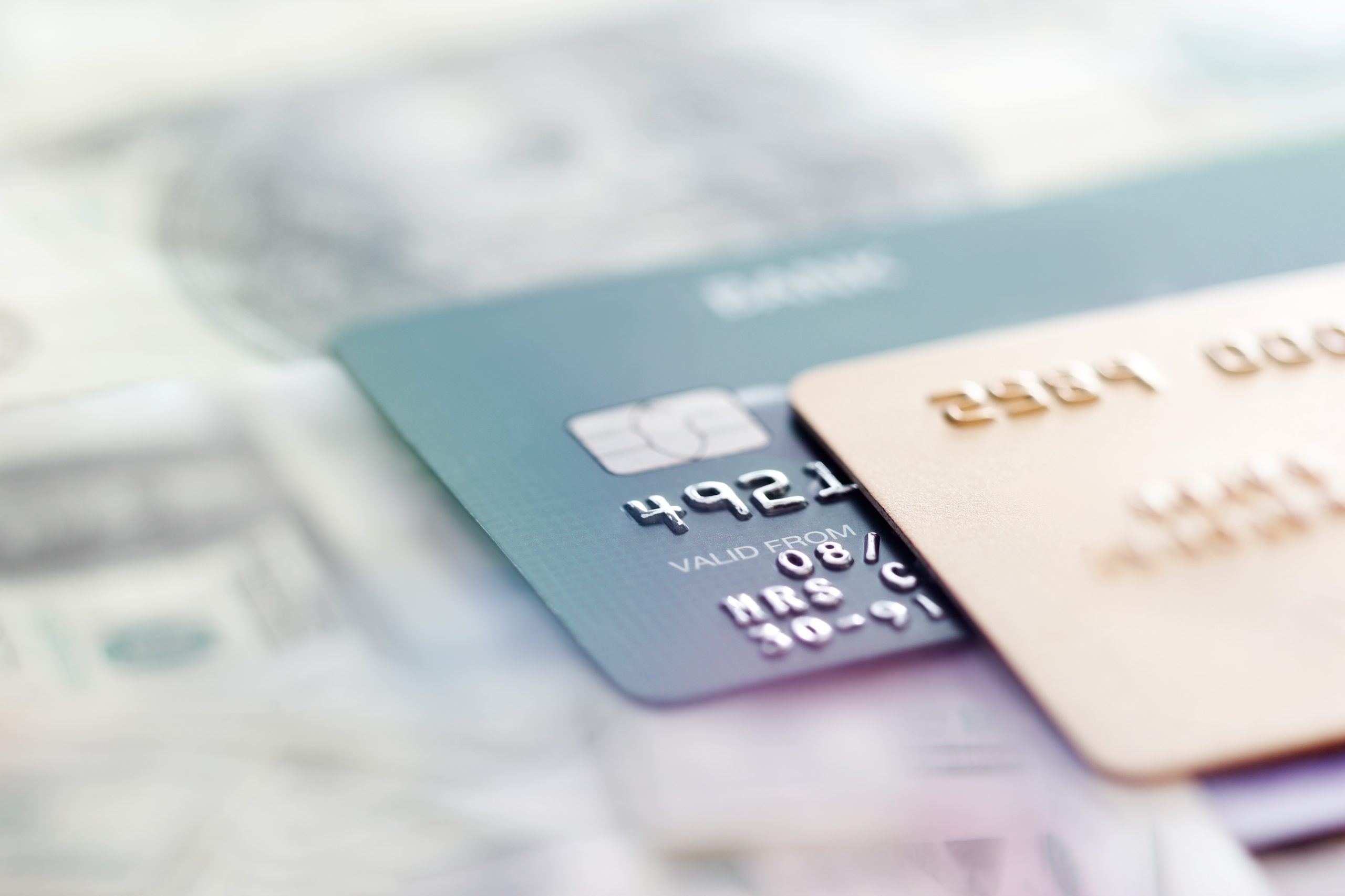Credit Cards vs. Debit Cards: What’s the Difference?
Definition of Credit Cards & Debit Cards
Credit cards and debit cards are often very similar in appearance: the standard 16-digit card number, expiry date, magnetic duct and Chip EMV. They are useful in paying for goods and services both in the physical world and on the internet. The only difference lies in the way the payment is processed. Debit cards operate on pre-loaded accounts where the user cannot spend more while credit cards work on borrowed cash from the card issuer as the case is up to a limit.
It is most probably that you have both a Credit Card and a Debit Card in your wallet. Such cards provide ease and safety, but there are essential disparities among them that may affect your wallet. Learning these differences will enable you to know which among the two cards is more appropriate considering your spending habits.
What is a Credit Card?
A credit card is a lending tool provided by an organization, typically a bank, to an individual who then incurs debt to that institution. Such individuals are expected to honor their debts within the regulations provided by the institution. There are various types of credit cards, including:
- Standard cards: These are cards that allow the holder to borrow money to make purchases, transfer debts from other creditors or withdraw some cash. These usually do not have an annual fee.
- Premium cards: These include certain additional benefits of a personal concierge, admission to business class lounges and special occasions among others, these usually cost higher annual fees.
- Rewards cards: Spending on the credit card results in cashback, travel related perks, or any other type of reward that is based on usage.
- Balance transfer cards: Normally come with low introductory annual interest for balance transfers.
- Secured credit cards: Come up with security deposits which are kept by the issuer of the card, as security.
- Charge cards: These cards require no minimum repayment each month. These cards do not have a fixed limit however, all expenses charged have to be paid off with the next month as no debts can be carried forward.
The use of credit cards that offer rewards to consumers allows them to earn cash, discounts, trips and awards which are not offered to the consumers who stick to debit cards. Rewards can be earned at the same rate, or at an increased rate based on reward tiers that are focused where spending such as for travel and dine out increased the percentage of rewards that could be earned. Every time one earns points, they will be able to use the points that they accumulate for other purchases like making flight or hotel reservations.
It is important to look at the expiration of the rewards and the reasons behind the selection of the rewards when selecting a reward card.
Advantages of Credit Cards
The benefits of credit cards are more than those of debit cards but perhaps one would say that let me focus on the downside of it first. Let’s delve into these advantages and disadvantages.
Establishment Of Credit Professional
Every time you use a credit card, for whatever reason, such information will be included in a credit report, this includes payments made on time, low credit utilization as well as late payments. Such information is required when computing the credit scores of an individual. This is because if credit cards are used prudently, they will help improve one’s rating if the individual routinely pays up and keeps their debt low managements.
Warranty and Purchase Protections
Certain cards provide cover for items bought with the card beyond the applicable warranty by the issuer and retailer. Suppose certain damages were experienced by the bought item, their credit card may take care of replacement or fixing it, in the case of theft, damages or defects.
In addition, price protection may also be offered, which makes the consumer happy by paying back the excess amount if the good is found at a cheaper cost later on.
Fraud Protection
The maximum liability in respect to unauthorized purchases is $50 if the user of a credit card makes a report of the credit card as due to its loss or theft in due time. This is unlike the situation under the Electronic Fund Transfer Act wherein it is only within 48 hours of reporting the card that a card holder has this protection for debit card users. Otherwise, this protection runs out, only increasing the liability but for a period of 60 days there is none. Hence it is clear that credit cards are more advantageous compared to debit cards in regards to fraud cover.
Additional Credit Card Advantages
In accordance with the Fair Credit Billing Act, credit cardholders have the right to contest any charge attributed to their card even when it is legitimate or the goods have been modified. As a standard practice, there will be a temporary suspension of the billed amount in regard to the disputed amounts. Use of debit cards by members or customers makes them active pensioners until the thorough verification processes required by the merchant are finished.
One additional type of benefit that credit cards have is the provision of car rental insurance. But even in the case you want to use a debit card for the rental, the agency may still require a credit card as a form of security deposit.
Disadvantages of having Credit Cards
Giving factors to the creditors its even vitals to understand that using credit cards has a great degree of advantages but cut for a certain degree also has some disadvantages. Debt Risk Using a credit card can be defined as borrowing money that is meant to be paid back. If too many cards are acquired hence multiple balances gone high, paying off such debts turns up to be a major challenge. The more a balance is carried forward, the further into debt one finds himself due to the high interest that accompanies the carrying over of debt.
Credit Impact on the use of Credit Card Schemes: Credit score derivatives, such as CIBIL scores in India or FICO Numbers in America, which are usually very sensitive to the users use of the credit card in a satisfactory manner so as to keep Credit History Risks ex:- Late payments, more requests for other cards after obtaining one, high usage of available credits, Failure to meet the requested Credit Card Payments Avoid big limits on credit… which can affect one’s credit years. Otherwise, a petition for notifying payment due dates and balances through alerts can save one from such situations.
Interest Fees and Other Financial Burdens: And by credit card they mean a plastic card issued by a bank as a type of payment system or to access a line of credit or to maintain one. The bad part of this is that the outstandings get charged interested if the balance is not paid on or before the due date. The APR apportioned per card shall also be varied and the gross debt amount notified shall have the proposed interest per annum rate. last but not least, many credit card accounts still attract other costs for example annual membership dues late fees foreign costs and cash odd fees and other costs associated with cash advances.
What Is a Debit Card?
A debit card is one that enables a user to make payments by taking money from his/her cheque account. It comes as a credit card does and may also contain consumer protection policies especially when it is from Big names such as Visa or Mastercard.
Debit cards can be sub-divided into:
- Standard debit cards: These directly link to a checking account.
- EBT cards: Given out by the government for approved individuals.
- Prepaid debit cards: Money has to be loaded to the cards first and usually are used by people without a bank account.
Extra fees may only apply to overdrawn account, unlike with credit cards where fees apply with each transaction carried out. Prepaid debit cards, however, have either an activational or a service fee as long as the card is used.
Reasons Why You May Prefer to Use Debit Cards
Avoid Debt
Since tapping the debit card uses up already available funds, it means no debt can be incurred. This would be necessary to those who have the habit of hypercrediting.
Fraud Protection
Even though debit cards represent your savings account, some debit cards have credit card features that provide fraud protections. Reporting such frauds at the right time can aid in the reduction of the amount that one would be liable for.
No Annual Fees
For all activities and services undertaken involving a debit card, such as withdrawal of funds, there are no annual licenses. Most of the time, there are also no charges for cash withdrawals in an ATM of your own bank.
Cons of Using Debit Cards
No Rewards Most cards, unlike credit cards, don’t have features such as offering cashback, points and miles for purchases made by personal debit cards.
Wont Build Credit One can preferably use the debit card to conduct their cash transactions because it is not reported to credit bureaus. This chip does not contribute to someone’s credit score.
Potential Fees There is no annual fee levied on debit cards but instead there are other fees that you are likely to pay such as that for maintenance of the account or expenses in the withdrawal of cash from overseas automated teller machines (ATMs).
Conclusion
Although credit and debit cards may seem similar to one another, their functions are not the same. Credit cards are for the purpose of gaining credit and significant perks on the other hand debit cards are more for keeping your spending under control. Learning about the card features will enable you in making the right choice of the card that you want based on your financial targeting.





